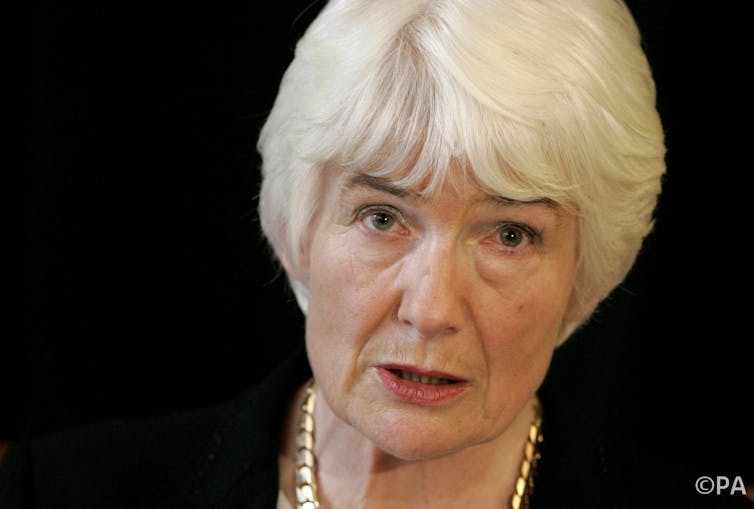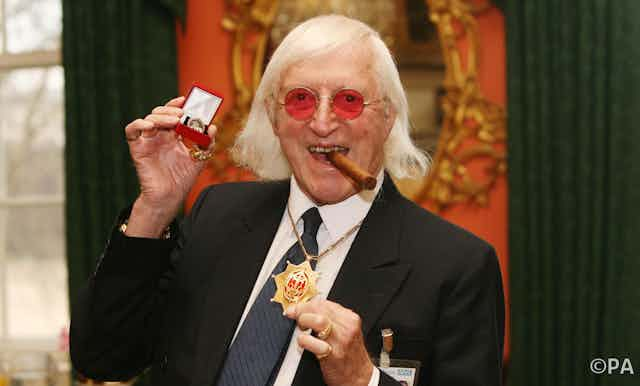Dame Janet Smith’s long awaited report on the culture and practices of the BBC in the time Jimmy Savile worked there has seen the light of day – or at least, some of it has. Draft chapters were leaked to the investigative website Exaro News. And in the context of the impending renewal of the corporation’s charter, the report is a political gift to its enemies.
The Smith Review was established in October 2012 and completed in May 2015, but the publication of its report was apparently delayed by the risk of prejudicing criminal investigations that were then ongoing. There were suggestions by Exaro last year that the BBC was seeking a delay to the publication of the completed report to protect itself until after its charter is renewed (the current charter runs until 31 December this year).
But it now appears that the full release of the report will come around six weeks after Exaro’s exclusive. And if media reports on the leaked draft accurately reflect its content, BBC Director General Tony Hall and the rest of the current management of the corporation have a tough time ahead.
Target BBC
For the BBC’s alleged failure (under previous management) to safeguard children on its premises and to deal with Savile’s activities is being cynically exploited. Both hostile politicians and journalists are holding up elements of a still-unofficial report as emblematic of the wider failings of managerialism inside the corporation.
Certainly, the BBC’s sworn enemies would be perfectly justified in putting the corporation in their journalistic crosshairs should any specific child protection failings be established. But the reflexive effort to blame the corporation almost exclusively for Savile’s crimes even before the full report is released conveniently forgets it is a uniquely placed cultural institution – one that’s political enemies want to see it undermined by any means.
This is the cynical calculus behind the furious blame game – and it neatly diverts attention from the role of the press and politicians in allowing Savile’s behaviour to remain out of public view.
Legal fears
Other institutions failed to expose Savile’s crimes, and the media at large was among them. Even when they wanted to report on the issue, they feared they would face costly legal battles they could not win. Ex-Sunday Mirror editor Paul Connew has explained how he sat on a victim’s testimony of Savile’s sexual abuse because the paper could not afford to tangle with Britain’s libel laws.
Other newspapers didn’t even seek to take on Savile. His brand of savvy entrepreneurialism, fix-it pragmatism and rule-breaking populism was admired by many of those currently damning the BBC. Meanwhile, politicians were involved in decisions that gave Savile direct power over very vulnerable people.

In 1988 Savile was appointed to head a task force managing Broadmoor. Yet none of the media forces currently gunning for the BBC are decrying Broadmoor as having been a failed institution unfit for purpose, or moving that it should perhaps be privatised because of something awful that happened decades ago.
The fallout from the Savile affair has exposed the absurd mismatch between what we expect of the BBC, a cultural institution, and the standards to which we hold the NHS and a psychiatric institution such as Broadmoor.
Surely we should be asking why the Home Office, the government department with overall responsibility for Broadmoor when Savile was at large, allowed children to be sent there in the first place. Yet the fact that Jimmy Savile was able to access supposedly secure parts the country’s most secure psychiatric institution has commanded nothing like the same public and media attention as have attacks on the BBC.
Political failure regarding the management of Broadmoor is astonishing, and the consequences for Savile’s victims every bit as serious as for those he targeted at the BBC. But in the cynical media-centric political game the scandal has triggered, that hardly seems to matter.

